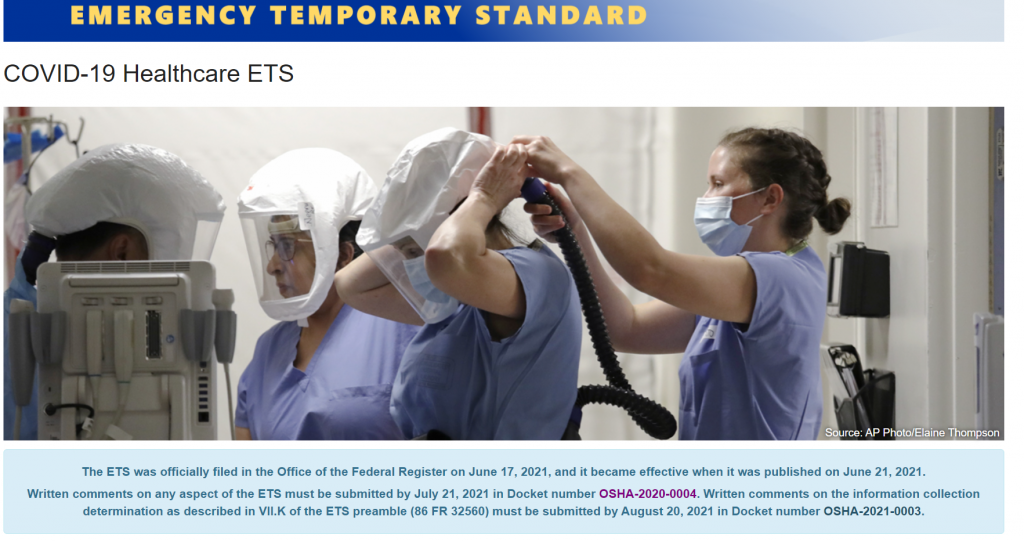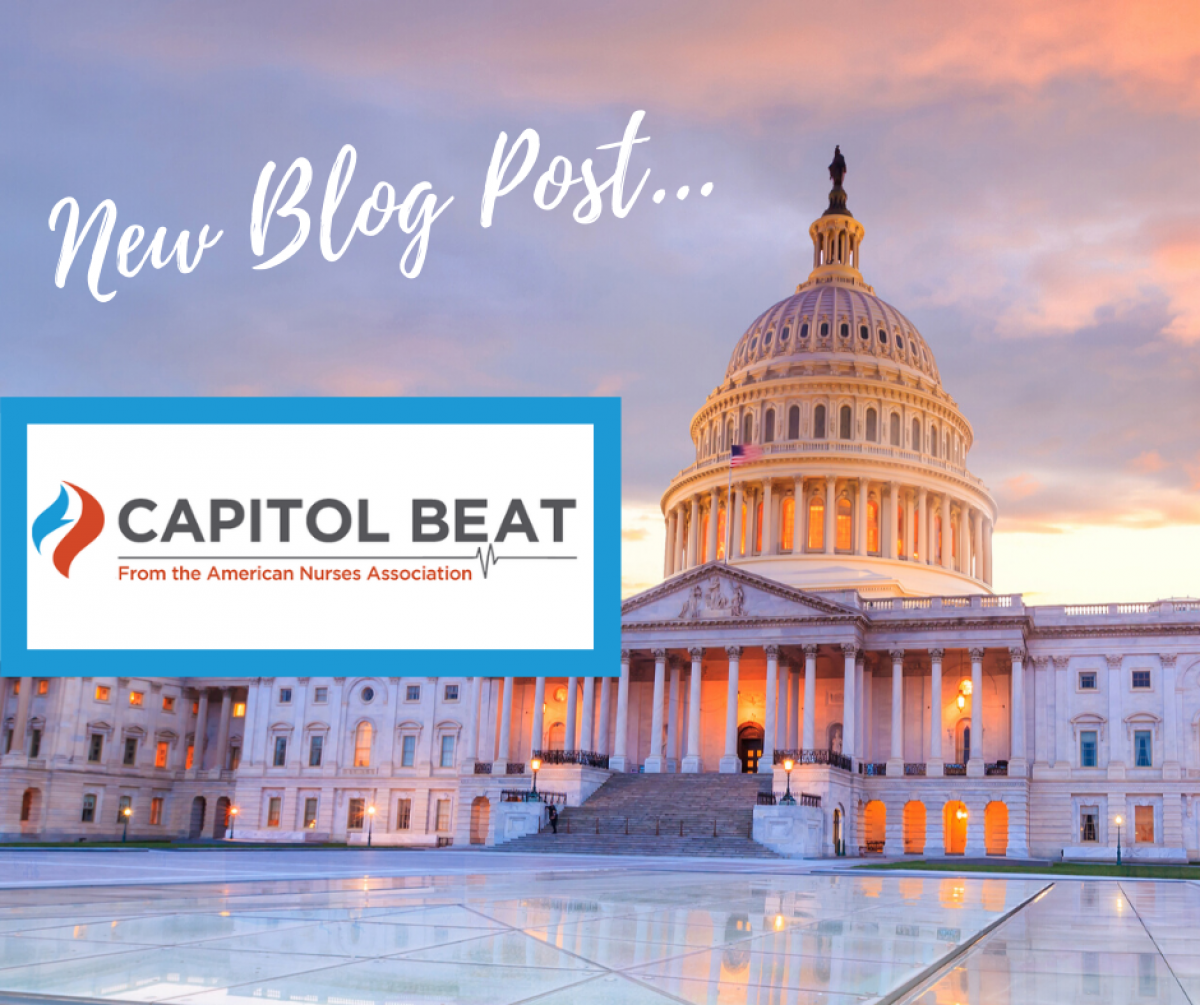
This Capitol Beat article was guest-written by Debbi Waters, MSN, RN, MJ, CHC, who was a student in the McKendree University Doctor of Nursing Practice (DNP) in Ethical Leadership Program. Ms. Waters completed her leadership practicum in partnership with ANA’s Department of Policy and Government Affairs and successfully completed all requirements as a DNP candidate on April 12, 2022. She will be awarded her degree on May 13, 2022.
The COVID-19 Healthcare Emergency Temporary Standard (ETS) issued by OSHA on June 21, 2021, although late in coming, was a very important step forward in providing workplace protections for all healthcare workers. There was an expectation, based upon statute and OSHA’s representations, that the ETS would be replaced with a permanent standard within six months of being issued. Thus, it was somewhat surprising on December 27, 2021, when OSHA announced they would step away from enforcement of the most protective provisions of the ETS and do so in the absence of a permanent standard. OSHA did provide assurances that a permanent standard would be forthcoming.
On March 23, 2022, OSHA issued a notice stating the agency would again accept comments on the interim final rule that established the COVID-19 ETS. Specifically, OSHA is requesting comments on proposed changes for a final rule that would broaden the scope of the ETS while increasing flexibility for employers.
As a Doctor of Nursing Practice candidate, I spent the past year thoroughly and carefully researching policies to safeguard healthcare personnel throughout the COVID-19 pandemic. The suggestion that OSHA is set to weaken many provisions of the ETS as OSHA transitions to a permanent standard was surprising.
The COVID-19 pandemic demonstrated the lack of readiness of the U.S. healthcare system to rapidly respond to the threat of an airborne infectious disease. As of March 30, 2022, there have been 1,071,214 cases of COVID-19 and 4,102 deaths reported among healthcare workers, a number significantly underestimated due to limitations of COVID-19 surveillance and tracking systems to accurately identify cases by occupation. This, combined with an astonishing 249 percent increase in reported workplace illnesses and injuries within the healthcare industry in 2020, an industry that led all other industries prior to COVID-19, would suggest that a permanent standard should incorporate relevant guidance and existing ETS provisions to create a strong workplace airborne infectious disease standard.
While it may appear that the most dangerous period of the COVID-19 pandemic is now in the rearview mirror, an extended view must be taken. The threat of new variants of COVID-19, continued infections among healthcare workers, and the threat of the next airborne infectious disease are very real dangers that must be addressed. Some of the key provisions that should be included in a permanent standard include:
- Provision of an N95 or higher respirator when caring for any patient with a novel or unknown respiratory virus, including pandemic influenza, until it is unequivocally confirmed to be droplet transmission rather than airborne;
- Workplace hazard assessment;
- Easily accessible, written airborne infectious disease plan;
- PPE stockpile, particularly N95 or higher respirators;
- Engineering controls to rapidly convert additional patient rooms into negative airflow;
- Process for tracking and reporting disease transmission, including notification and surveillance of those who may have been exposed regardless of occupational class or department;
- Access to vaccinations for disease pathogens, based upon vaccine availability, at no cost to employees;
- Employee training on the infectious disease plan, and all policies and procedures related to protection of health and safety;
- Mini Respiratory Program to provide rapid access to respirators for precautions deemed necessary outside of the scope of a known diagnosis or suspected case of an airborne infectious disease; and
- Triggers for crisis standard use and termination.
While the significant increase in workplace morbidity and mortality within the healthcare industry is in large part attributed to COVID-19, it is also reflective of the weaknesses in the healthcare system to rapidly deploy lifesaving protections based on years of voluntary guidance rather than enforceable standards. The OSHA rulemaking process for a permanent infectious disease standard began shortly after the H1N1 pandemic of 2009; yet, more than a decade later, healthcare workers continue to provide care without a federal workplace standard to protect them from the workplace threat of airborne infectious diseases.
This is not the time for nurse safety to backslide, but rather a time for nurses to advocate for prompt action on a permanent workplace airborne infectious disease standard. This is the time to call upon OSHA to focus on the fundamental responsibility to establish the workplace protections we deserve now and to build sustainable capacity to rapidly adapt to the next threat.
Next Steps
There is still time to act by reviewing the proposed changes to the ETS as it is considered for a permanent COVID-19 standard. OSHA will be accepting public comments through April 22, 2022, ahead of public hearings that will begin on April 27, 2022. To submit your comments and encourage OSHA to strengthen rather than weaken the ETS provisions, visit regulations.gov and select the comment button. Now is the time for the voice of nursing professionals to be heard.

